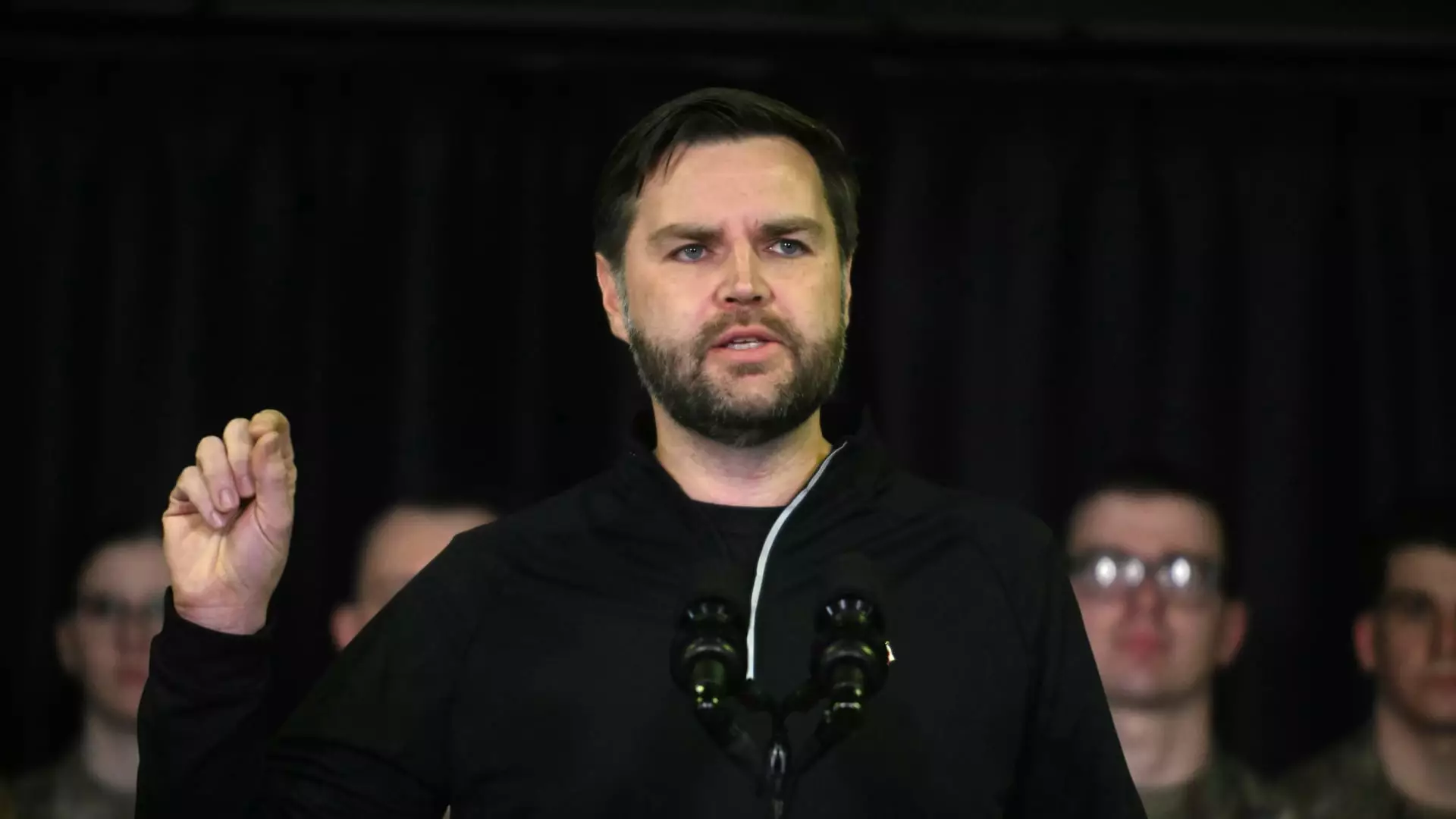In an era characterized by increasing international competition, the Arctic has emerged as a crucial arena for global power dynamics. The U.S. Vice President JD Vance’s recent comments regarding Greenland’s security have ignited a firestorm of debate about the American approach toward its Arctic ambitions. Vance asserted on Friday that Denmark, in its administration of Greenland, has inadequately invested in the island’s security, a viewpoint that resonates strongly with the current U.S. administration’s militaristic foreign policy. But what lies beneath these allegations? Is it merely a veiled excuse for expanding America’s reach, or does it reflect a genuine concern for national security?
Denmark’s Security Under Scrutiny: A Question of Commitment
Vance’s accusations against Denmark are not merely diplomatically tone-deaf; they border on reckless. “Denmark hasn’t done a good job keeping Greenland safe,” he claimed, failing to acknowledge the complex historical ties and cooperative efforts that exist between the two nations. The insinuation that Denmark is somehow negligent in defending its territories undermines centuries of partnership and mutual respect.
Countries like Denmark, which balance their defense budgets among numerous social and economic responsibilities, are often at risk of being painted unfavorably by more militaristic allies who prioritize defense spending above all else. The expectation that European nations must always adhere to the military mold set forth by the U.S. is not only unfair but also simplistic. Vance’s claims neglect to consider that investing in social welfare, environmental initiatives, and promoting diplomatic ties are valid forms of national security investment, too.
The Ghost of Trump: Old Policies in New Clothes
Trump’s earlier ambitions to acquire Greenland reflect an unsettling neo-colonial attitude towards Indigenous populations and their territories. Vance echoed these sentiments by boldly declaring the “absolute necessity” for U.S. control over the island—rhetoric that, one might argue, disregards the agency and feelings of Greenland’s residents. Greenland is not a mere asset but a location rich in cultural history and dignified autonomy.
To take a step back, it’s imperative to question the coherent logic driving a narrative that frames the U.S. position in the Arctic as indispensable. The reality is that both Russia and China have legitimate interests in the region, and simply dismissing their involvement as aggressions does not serve American national interests in the long run. Furthermore, these statements only serve to further escalate U.S.-Russia tensions, an approach that is increasingly becoming counterproductive.
Alarming Underpinnings: Military Investments vs. Human Value
Vance’s insistence on heightened military readiness in Greenland and the Arctic highlights a concerning trend in politics: the prioritization of military investment over human welfare. It’s a well-known fact that militarization does not guarantee safety—on the contrary, it often breeds hostility. “We need to ensure that America is leading in the Arctic,” Vance proclaimed, yet history shows that effective leadership often lies in collaboration rather than domination.
Danish leaders, including Foreign Minister Lars Lokke Rasmussen and Danish Defense Minister Troels Lund Poulsen, expressed discomfort regarding the tone used by the Vice President. Such diplomatic language is crucial; it underscores that approaching allies with indignation might only exacerbate discord rather than foster collaboration. By dismissing the nuances of diplomatic dialogue, Vance and likeminded political figures risk alienating rather than uniting nations around common goals.
The Bigger Picture: International Cooperation over Isolation
With a complex global landscape brewing with multifaceted concerns, the need for cooperative strategies cannot be overstated. Denmark’s Foreign Minister and Greenland’s leaders have made it clear that they are open to discussing the political and military necessities without the brash and dominant declarations that have characterized U.S. foreign policy recently.
What emerges from this dialogue—and what should always remain at the core—is the fundamental rights of Greenland’s people to have a say in their future. Vance’s confrontational tone and the echoes of Trump’s aspirations to control Greenland only serve to undermine their sovereignty. This situation illustrates the perils of treating international relations as a zero-sum game rather than a shared enterprise grounded in respect and understanding.
In today’s interconnected world, myopic views focused solely on militarization and dominance should make way for strategies that prioritize cooperation, respect, and the multipolar balance of power. In doing so, not only can we ensure security but also cultivate a global community that thrives on mutual support, understanding, and collaboration—an approach that the Arctic, and the world at large, desperately needs.


Leave a Reply